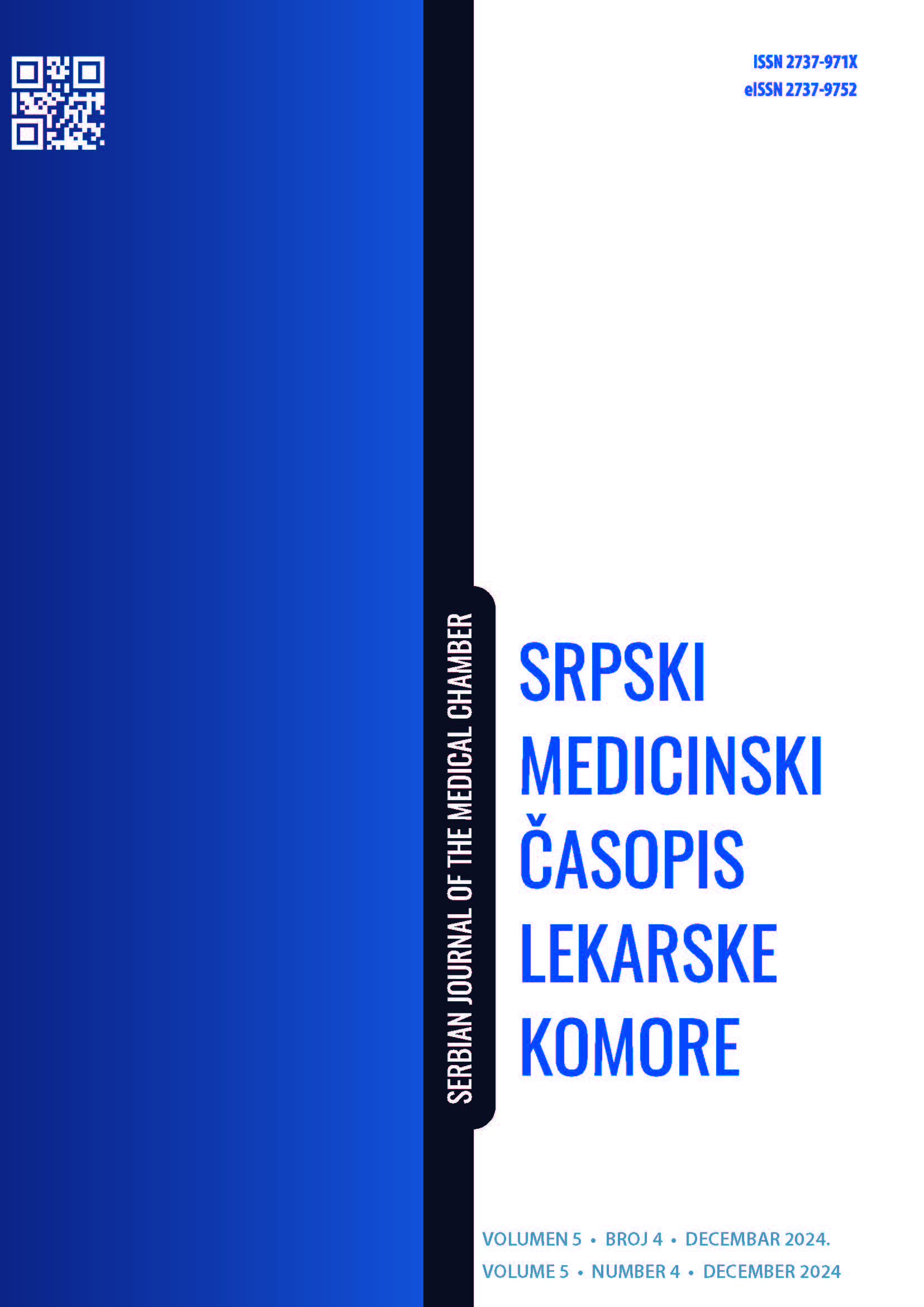REVERSIBLE OCULAR ADVERSE EFFECTS IN MELANOMA TREATMENT WITH MEK/BRAF INHIBITORS
Abstract
Introduction: MEK/BRAF inhibitors, including cobimetinib and vemurafenib, are effective in managing BRAF-mutant melanoma. Despite their efficacy, these therapies may cause adverse effects, including ocular toxicities. Although uncommon, these complications can significantly impact a patient’s quality of life and adherence to treatment. This case report highlights a 57-year-old female who developed ocular side effects during MEK/BRAF inhibitor therapy, underscoring the need for early recognition and management.
Case report: A 57-year-old female received MEK/BRAF inhibitors (cobimetinib and vemurafenib) for eight months after surgery for skin melanoma. During treatment, she developed significant ocular adverse effects, including bilateral pigmented keratic precipitates, anterior chamber inflammation, and vitritis, resulting in reduced visual acuity. Ophthalmologic examination revealed signs of inflammation, prompting a three-week suspension of the therapy. After discontinuing the treatment, the patient experienced marked improvement, with her visual acuity returning to 20/20. Subsequent examinations confirmed the resolution of ocular symptoms, indicating that the adverse effects were linked to the therapy rather than metastatic disease.
Conclusion: This case highlights the importance of identifying and managing ocular toxicities associated with MEK/BRAF inhibitors. Although rare, these complications can severely affect quality of life and treatment continuation. A multidisciplinary approach, involving both oncologists and ophthalmologists, is essential for monitoring and addressing these issues. Further research is needed to better understand the mechanisms behind these adverse effects and to improve management strategies for patients on targeted melanoma therapy.
References
Tímár J, Ladányi A. Molecular pathology of skin melanoma: epidemiology, differential diagnostics, prognosis and therapy prediction. Int J Mol Sci. 2022 May 11;23(10):5384. doi: 10.3390/ijms23105384.
Ottaviano M, Giunta EF, Tortora M, Curvietto M, Attademo L, Bosso D, et al. BRAF gene and melanoma: back to the future. Int J Mol Sci. 2021 Mar 27;22(7):3474. doi: 10.3390/ijms22073474.
Flaherty KT, Puzanov I, Kim KB, Ribas A, McArthur GA, Sosman JA, et al. Inhibition of mutated, activated BRAF in metastatic melanoma. N Engl J Med. 2010 Aug 26;363(9):809-19. doi: 10.1056/NEJMoa1002011.
Long GV, Stroyakovskiy D, Gogas H, Levchenko E, de Braud F, Larkin J, et al. Combined BRAF and MEK inhibition versus BRAF inhibition alone in melanoma. N Engl J Med. 2014 Nov 13;371(20):1877-88. doi: 10.1056/NEJMoa1406037.
Dummer R, Ascierto PA, Gogas HJ, Arance A, Mandala M, Liszkay G, et al. Encorafenib plus binimetinib versus vemurafenib or encorafenib in patients with BRAF-mutant melanoma (COLUMBUS): a multicentre, open-label, randomised phase 3 trial. Lancet Oncol. 2018 May;19(5):603-15. doi: 10.1016/S1470-2045(18)30142-6.
Robert C, Schachter J, Long GV, Arance A, Grob JJ, Mortier L, et al. Pembrolizumab versus ipilimumab in advanced melanoma. N Engl J Med. 2015 Jun 25;372(26):2521-32. doi: 10.1056/NEJMoa1503093.
Hecht M, Zimmer L, Loquai C, Weishaupt C, Gutzmer R, Schuster B, et al. Radiosensitization by BRAF inhibitor therapy-mechanism and frequency of toxicity in melanoma patients. Ann Oncol. 2015 Jun;26(6):1238-44. doi: 10.1093/annonc/mdv139.
Martens A, Schauwvlieghe PP, Madoe A, Casteels I, Aspeslagh S. Ocular adverse events associated with immune checkpoint inhibitors, a scoping review. J Ophthalmic Inflamm Infect. 2023 Feb 22;13(1):5. doi: 10.1186/s12348-022-00321-2.
Sarny S, Neumayer M, Kofler J, El-Shabrawi Y. Ocular toxicity due to trametinib and dabrafenib. BMC Ophthalmol. 2017 Aug 17;17(1):146. doi: 10.1186/s12886-017-0541-0.
Gavric AU, Ocvirk J, Mekjavic PJ. Ocular changes in metastatic melanoma patients treated with mek inhibitor cobimetinib and braf inhibitor vemurafenib. Radiol Oncol. 2018 Jan 24;52(2):213-9. doi: 10.2478/raon-2018-0002.
Jeng-Miller KW, Miller MA, Heier JS. Ocular effects of MEK inhibitor therapy: Literature review, clinical presentation, and best practices for mitigation. Oncologist. 2024;29(5): e616-21. doi:10.1093/oncolo/oyae014.

